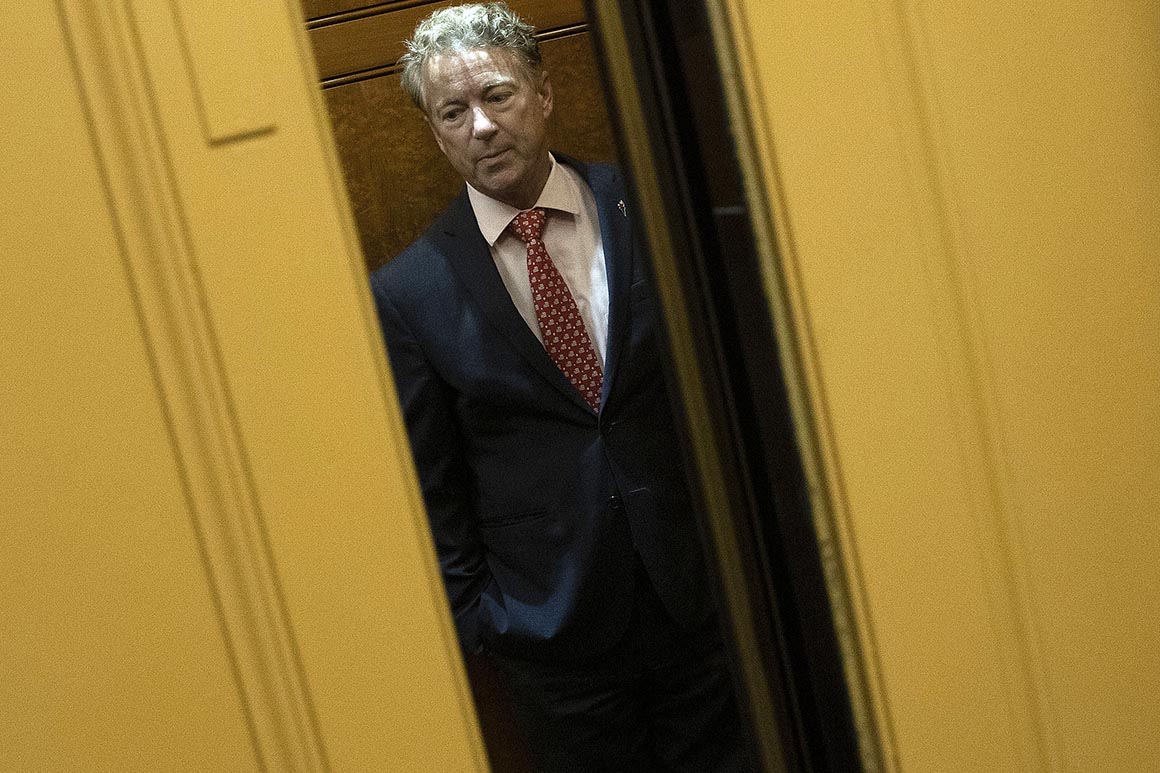
The most vivid example in American history likely was around World War II. As the world was aflame, but the United States not yet engaged in hostilities, the country was bitterly and intensely divided over the all-consuming question of that era: intervention or isolation. Then came Pearl Harbor, and the debate ended in an instant. Isolationism looked to be a defunct ideological force. Except it wasn’t really. The movement’s essential spirit—fear of corrupt and scheming interests beyond American borders—found new and malicious expression in McCarthyism in the late 1940s and early 1950s.
In the modern era, two other moments of crisis produced the illusion of ideological interruptus. Recall that the votes authorizing war with Iraq in 2002 and the bailout of banks during the financial crisis of 2008 were passed in the Senate with majority support of both parties. Both issues, Iraq and the bailout, generated fierce ideological backlashes that echo to this day.
We will learn over the course of 2020 what relevance these familiar ideological dynamics have to the politics of pandemic. Do you trust Trump and the way his impulsive, personality-driven style is the more flamboyant question. Do you trust interventionist government — supported by nearly all governors of both parties, following the dictates of health professionals—is the more fundamental question.
The pandemic response arguably could represent liberal values at their best. Government, guided by scientific expertise, protected vulnerable people through a noble exercise of shared sacrifice for shared benefit.
The pandemic response arguably could represent a caricature of what critics disdain about liberalism. Government, responding in a panicky way to headlines and hysteria, ran roughshod over individual freedom and the private sector, a problem whose only remedy was even more remorseless expansion of government.
The fact that even tough-minded Republican governors like Larry Hogan of Maryland or Mike DeWine of Ohio ordered shutdowns to curb coronavirus weakens the intellectual case for the second argument. But what matters politically is the emotional case, which looks to be strong. There were protestors in Ohio, Michigan and elsewhere this week demanding faster action to lift stay-at-home orders and reopen the economy.
These protesters surely would cite the widespread shaming of people who go to the beach instead of sheltering at home or refuse to wear masks as evidence of the scolding, sanctimonious character of the supposedly progressive mind.
Scolding, meanwhile, brings us back to Rand Paul and his not especially nasty case of Covid-19. Laughter may be forbidden in the pandemic but finger-wagging is encouraged, so long as done from a distance of six feet or more. Paul was excoriated by many for working out at the Senate gym while awaiting his coronavirus test results.
He responded that he only took a test out of an abundance of caution on his own initiative, not because he was feeling symptoms or required by official guidelines. Maybe so, but the consensus was clear: shame on him.
But the shame game can be tricky for accusers no less than accused. Chicago Mayor Lori Lightfoot has drawn praise, and some mockery, for driving around Chicago sternly scolding people at parks and trails to go home. But then she got skewered when she personally ignored the order that haircuts are a verboten non-essential activity. Lightfoot responded that as mayor she is the “public face of this city” and has to look good. She said her stylist was wearing gloves and mask, though when they posed on social media neither was wearing those.
The controversy was making it hard, once again, to ignore the no-laughing rule. But it highlighted a serious point: The nature of the crisis and stay-at-home orders represent a collision of public policy with this intimate details of daily life.
Even non-libertarians, for instance, might be glad to have someone like Paul being heard about the proper rules if government proceeds with proposals to use mobile phone apps to track the movements of people who test positive for coronavirus. The pandemic may be one of those historical moments that rewrite ideological lines— but we can be sure it won’t erase them.
Source: politico.com
See more here: news365.stream






